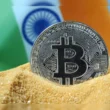
The recent decision by the Supreme Court to suspend Rahul Gandhi’s conviction in a defamation case, where he allegedly made remarks against the ‘Modi’ community, has prompted senior advocate and former Congress leader Kapil Sibal to express his lament over the exploitation of court procedures for political agendas. Sibal’s remarks highlight the concern about the potential misuse of the judicial system for partisan interests.
Sibal, known for his legal acumen and involvement in political matters, took to Twitter to convey his sentiments. In his tweet, he underscored the unfortunate trend of employing legal trials as tools for political motives. He cited the Supreme Court’s own statement on the case to emphasize his point, indicating that the case against Rahul Gandhi was influenced by political motives rather than a genuine pursuit of justice.
“Supreme Court Stays Rahul’s conviction. On the day Rahul was convicted I publicly said the conviction is unwarranted and will not stand. The reason I gave is what the Supreme Court said yesterday Unfortunate that court procedures are used for political agendas!” tweeted Kapil Sibal on Saturday.
The Supreme Court’s decision to stay Rahul Gandhi’s conviction has garnered attention not only for its legal implications but also for its potential impact on political dynamics. The Congress party has hailed the decision as a triumph of “love over hate,” reinforcing their narrative of pursuing inclusive and progressive politics.
The case in question was filed in 2019 by Purnesh Modi, who took objection to Rahul Gandhi’s remark on the ‘Modi’ surname. Rahul Gandhi’s comment, “How come all thieves have Modi as the common surname?” triggered the legal action. The stay on his conviction paves the way for Rahul Gandhi’s eligibility to contest the Lok Sabha elections in 2024.
The suspension of the conviction was driven by a series of considerations. The trial court in Surat, Gujarat, which initially convicted Rahul Gandhi, failed to justify the imposition of the maximum two-year sentence. The Supreme Court also noted that a shorter sentence would not have resulted in his disqualification from public office. The court highlighted that while public figures like Rahul Gandhi should exercise caution in their public speeches, the conviction and disqualification not only impede his political rights but also undermine the rights of the electorate that elected him.
Sibal’s remarks are reflective of a broader discourse surrounding the use of legal processes and judicial mechanisms for political maneuvering. The observation of the Supreme Court’s statement and Sibal’s response underscore the complexity of legal cases that intersect with political narratives.
This incident not only raises questions about the functioning of the judiciary and the potential influence of political motives on legal proceedings but also highlights the need for a robust and transparent legal system that upholds the principles of justice and equality.
As political and legal spheres continue to intertwine, cases like Rahul Gandhi’s serve as reminders of the delicate balance between the rule of law and the potential for political exploitation. The discourse around this case underscores the necessity for an independent judiciary that remains vigilant against the potential for undue external pressures, ensuring the integrity and fairness of legal proceedings in the pursuit of justice.









